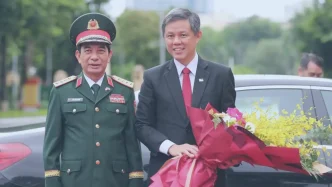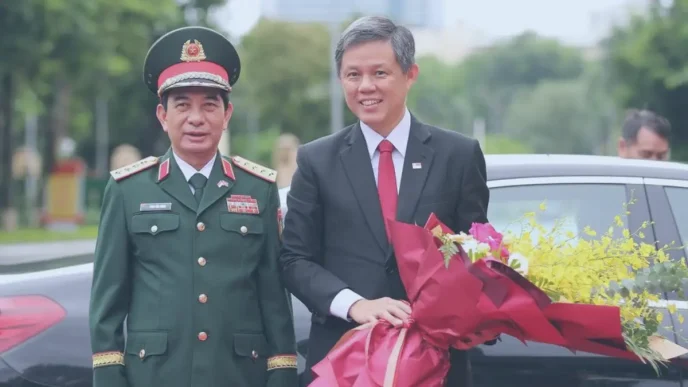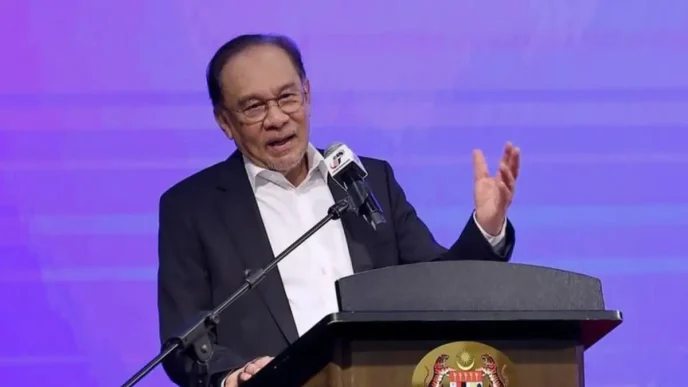The world of Vietnamese academia and culture mourns the loss of Professor Lê Thành Khôi, a towering figure in history, education, and literature, who passed away at the age of 102 at his home in Paris on 4 February 2025. His son, musician Nguyên Lê, announced the news, marking the end of an era for a scholar whose work profoundly shaped the understanding of Vietnam’s past and identity. Lê Thành Khôi’s life, spanning over a century, was a testament to intellectual rigour and a deep commitment to preserving and sharing Vietnam’s cultural heritage with the world.
Born in Hanoi to a family that revered education, Lê Thành Khôi was destined for a life of learning. His father, Lê Thành Ý, was a professor at the prestigious French Lycée Albert Sarraut in Hanoi, while his mother, Phạm Thị Nghĩa, was among the first female teachers in Vietnam—a pioneering role in a society where such opportunities for women were rare. This environment of intellectual curiosity and progressive values undoubtedly influenced Lê Thành Khôi’s path, leading him to France in 1947 to pursue higher education at the tender age of 24.
In France, Lê Thành Khôi’s academic journey was nothing short of remarkable. He defended his doctorate in economics in 1949, an achievement that was only the beginning of a multifaceted career. He went on to earn additional qualifications, including a diploma in literature and further doctorates in education and literature and social sciences. His insatiable thirst for knowledge saw him rise to the position of professor at the University of Paris, among other esteemed institutions in France. By 1971, he was elected Professor at the University Paris V, cementing his status as a leading academic in his fields.
A Global Scholar with Vietnamese Roots
Lê Thành Khôi’s contributions extended far beyond the lecture halls of Paris. In 1963, he became a UNESCO consultant, working on various United Nations projects that allowed him to apply his expertise on a global stage. His scholarly output was prolific, with 25 scientific papers to his name and co-authorship of 33 published works. Among his most significant contributions were his historical texts on Vietnam, which remain essential reading for scholars and researchers both within and outside the country.
His seminal works, Le Viet Nam, Histoire et Civilisation (published in 1955 by Minuit Paris) and Histoire du Viet Nam, des origines à 1858 (published in 1982 by Sud-Est Asie, Paris), have been widely cited for their comprehensive and objective exploration of Vietnam’s history. These texts were later combined and translated into Vietnamese as History of Việt Nam from Beginning until mid XX Century, published in 2014 by Nhã Nam and Thế Giới Publishers. In this book, Lê Thành Khôi dedicated an entire chapter to what he termed ‘national Vietnamese characteristics’—a concept he argued was central to the nation’s resilience, independence, and self-reliance through centuries of challenges.
This focus on national identity resonated deeply with Vietnamese readers and scholars, offering a lens through which to understand the cultural and historical forces that shaped the country. His work was not merely academic; it was a bridge between Vietnam’s past and its modern aspirations, providing a narrative that was both analytical and deeply personal.
Beyond his written contributions, Lê Thành Khôi’s dedication to Vietnam’s cultural heritage was evident in his actions. In 2015, he and his wife donated over 330 antiques from his private collection to the Hanoi Museum of Ethnology. This generous act ensured that future generations of Vietnamese could connect with tangible pieces of their history, preserving artefacts that might otherwise have been lost to time or private ownership.
His efforts did not go unrecognised. In 2004, France honoured him with the title Knight of Literature and the Arts, alongside the Francophonie Award, acknowledging his contributions to literature and cultural exchange. Closer to home, the Hanoi-based Phan Châu Trinh Foundation awarded him the prestigious Phan Châu Trinh Award, celebrating his role in advancing Vietnamese scholarship and cultural understanding.
A Life Well-Lived
Lê Thành Khôi’s passing marks the loss of a scholar who embodied the spirit of intellectual pursuit and cultural preservation. Survived by three children and several grandchildren and great-grandchildren, his personal legacy is as rich as his professional one. His life story—from a young man in colonial Hanoi to a globally respected academic in Paris—mirrors the journey of Vietnam itself, navigating the complexities of tradition and modernity, colonialism and independence.
For many in Vietnam and the diaspora, Lê Thành Khôi was more than a historian or professor; he was a custodian of national memory. His writings offered a nuanced perspective on Vietnam’s history, free from the ideological constraints that often colour such narratives. His emphasis on ‘national characteristics’—the resilience and autonomy of the Vietnamese people—remains a powerful reminder of the strengths that have defined the nation through adversity.
As the Vietnamese community in Hanoi and beyond reflects on his contributions, there is a shared sense of gratitude for a man who dedicated his life to illuminating the past. His work will continue to inspire students, historians, and anyone seeking to understand the intricate tapestry of Vietnam’s history and identity. While Lê Thành Khôi may no longer be with us, his words and deeds ensure that his presence endures in the cultural and intellectual life of Vietnam.














